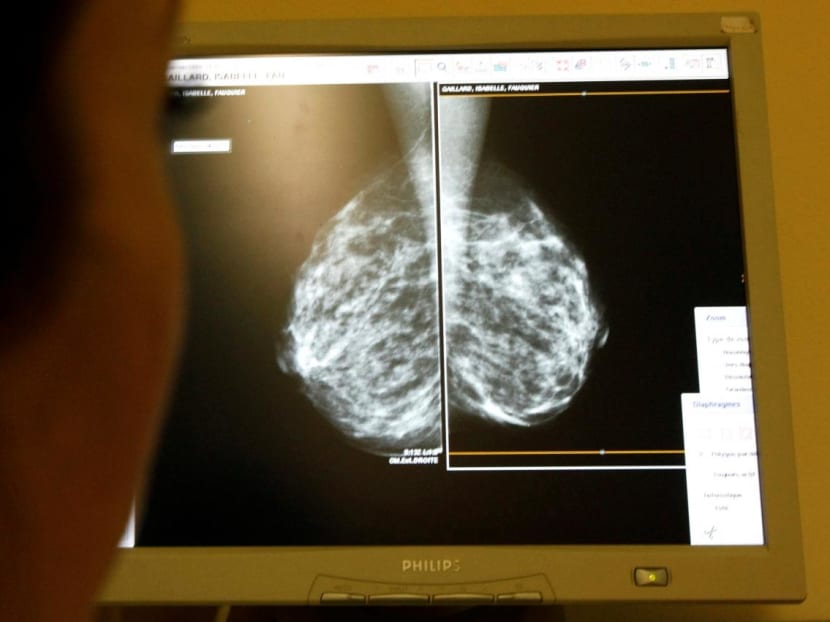Why early breast cancer detection truly saves lives
The message from the Breast Cancer Awareness Month in October is clear: early detection saves lives. But in my 20-odd years of interacting with breast cancer patients and their caregivers, I have found that many do not truly appreciate the significance behind why early detection truly saves lives.
Many Singaporeans from all walks of life gave their support to breast cancer survivors in a pink fashion for Breast Cancer Awareness Month in October.
Be it boarding the Pink Train, adorning Pink Ribbons or participating in pink-themed charity runs or yoga sessions, this pink tidal wave has carried forth a clear message: early detection saves lives.
It’s a simple message. Detect breast cancer early and you’ll have a better chance of surviving it.
But in my 20-odd years of interacting with breast cancer patients and their caregivers, I have found that many do not truly appreciate the significance behind why early detection truly saves lives.
Or the importance of regular mammograms in helping us detect breast cancer early.
“Can I be fully cured?” That was the first question Mdm W asked me during our first consultation.
Mdm W is a middle-aged Chinese woman who had been diagnosed with the final stage – stage 4 – of breast cancer.
By the time she saw me, her cancer had already spread beyond her breasts and into her liver.
Mdm W’s condition was detected late because she chose not to have her breasts screened regularly, out of an unfounded fear of the potential detrimental effect of radiation exposure from a mammogram.
In reality, the harm from the relatively small dose of radiation encountered in a screening mammogram is often grossly blown-up in people’s minds.
The radiation dose from a mammogram is not very far from the increased comic radiation exposure from a to-and-fro flight to North America.
In short, the benefit of early breast cancer detection through mammography outweighs the potential risk.
Once breast cancer has reached an advanced stage – also known as metastatic breast cancer – it can no longer be cured.
Conversely, there is a chance of a cure if breast cancer is diagnosed and treated early, before it has spread to other parts of the body.
The potential of a cure is one reason why we say early detection saves lives.
Because detecting and treating breast cancer at an early stage before it spreads gives breast cancer patients the best chance of a cure.
Knowledge is power. And in the case of breast cancer, it could be the key to survival.
Sadly, women in Singapore – in particular women below 45-years-old – have limited knowledge of breast cancer, according to a national survey conducted by Breast Cancer Foundation last year.
For example, did you know that there are three main types of breast cancer? Knowing the type of breast cancer is important in determining the most effective treatment approach.
Hormone receptor-positive is the most common type of breast cancer. This type of cancer grows in response to certain hormones, and as such responds well to therapies that inhibit the growth of those hormones.
Human epidermal growth factor receptor 2 positive (HER2-positive), is an aggressive form of the disease which affects roughly one in five women with breast cancer.
Triple-negative is also an aggressive form of the disease that is the most challenging to treat.
HER2-positive breast cancer can be aggressive if left untreated. It occurs when breast cancer cells produce excessive amounts of HER2 protein.
HER2 protein functions like a growth switch on the surface of a breast cancer cell constantly sending signals to the control centre (known as the nucleus) driving the cell to multiply and conferring it with ability to resist the attack by chemotherapeutic drugs.
Patients with HER2-positive breast cancer also stand a higher chance of relapsing and developing into an incurable advanced stage.
In fact, an estimated two-thirds of HER2-positive advanced breast cancer diagnoses are a result of relapse, rather than advanced breast cancer being the initial diagnosis.
Detecting such aggressive forms of breast cancers early on opens up more treatment options that may reduce the risk of cancer recurrence, and potentially save lives.
WHAT MORE CAN BE DONE?
Today, more than nine in 10 breast cancers in Singapore are detected at an early stage.
Breast cancer from stages 0 through to 3 is considered “early stage”.
When patients come to me with a self-detected breast lump, the cancer is typically in stage 2 or 3.
Breast cancer in stage 0 and 1 are more commonly detected through mammogram screening. Intuitively, breast cancer in stage 0 or 1 would have a much higher long-term cure rate than disease in in stage 2 or 3.
Unfortunately, less than 40 per cent of Singaporean women aged between 50 and 69 go for a mammogram.
I believe we need to do more to change this.
More in-depth education around breast cancer types and treatments, and not just simply raising awareness of breast cancer, could convince more women of the importance of regular screening.
To dispel popular myths that act as stumbling blocks to women coming forward for breast cancer screening and to change deeply ingrained mindset through public education is no easy task.
Such a Herculean task can only be accomplished through the partnership of doctors, the media and other healthcare industry players to ceaselessly chip away at unfounded fears and prejudices.
I for one, would love to see more public discourse around aggressive breast cancers.
Imagine how it would have changed the lives of patients like Mdm W, who lacked such knowledge to make an informed decision about breast cancer screening.
So the next time you hear the phrase “early detection saves lives”, I hope you’ll be reminded of why it truly matters.
ABOUT THE AUTHOR:
Dr Wong Seng Weng is the medical director and consultant medical oncologist of The Cancer Centre (Singapore Medical Group) at the Paragon and Mount Elizabeth Novena Specialist Centre.










